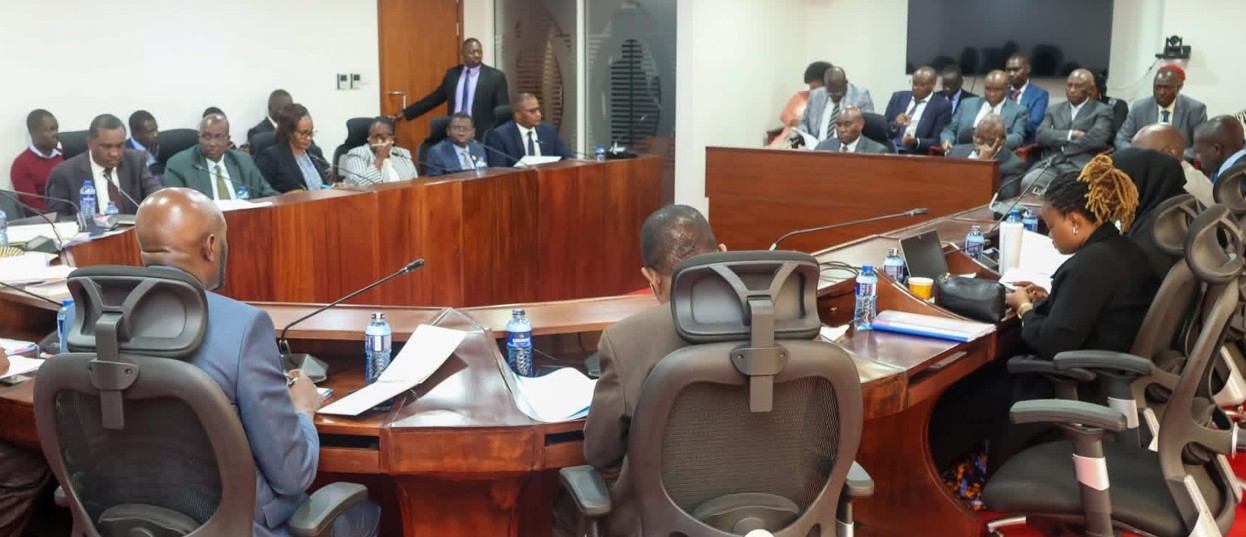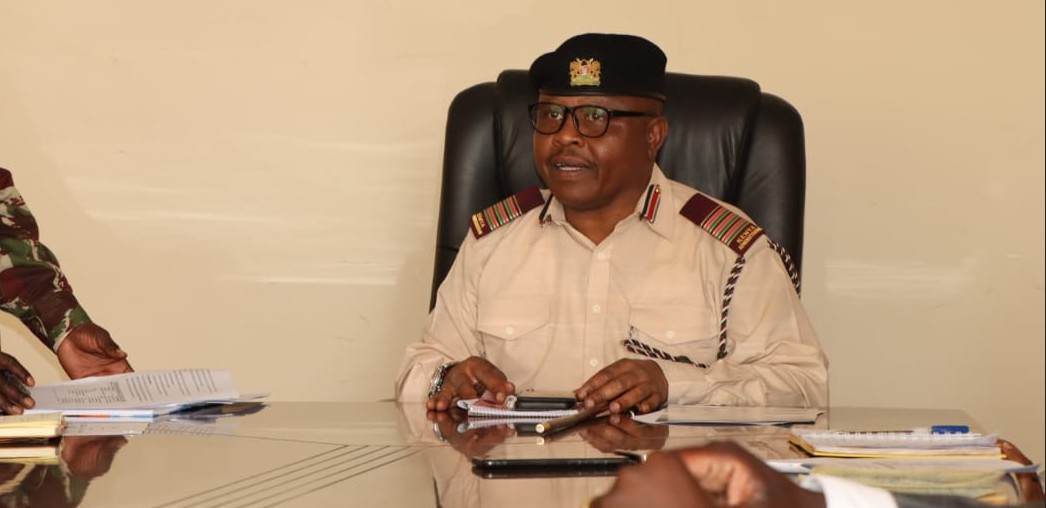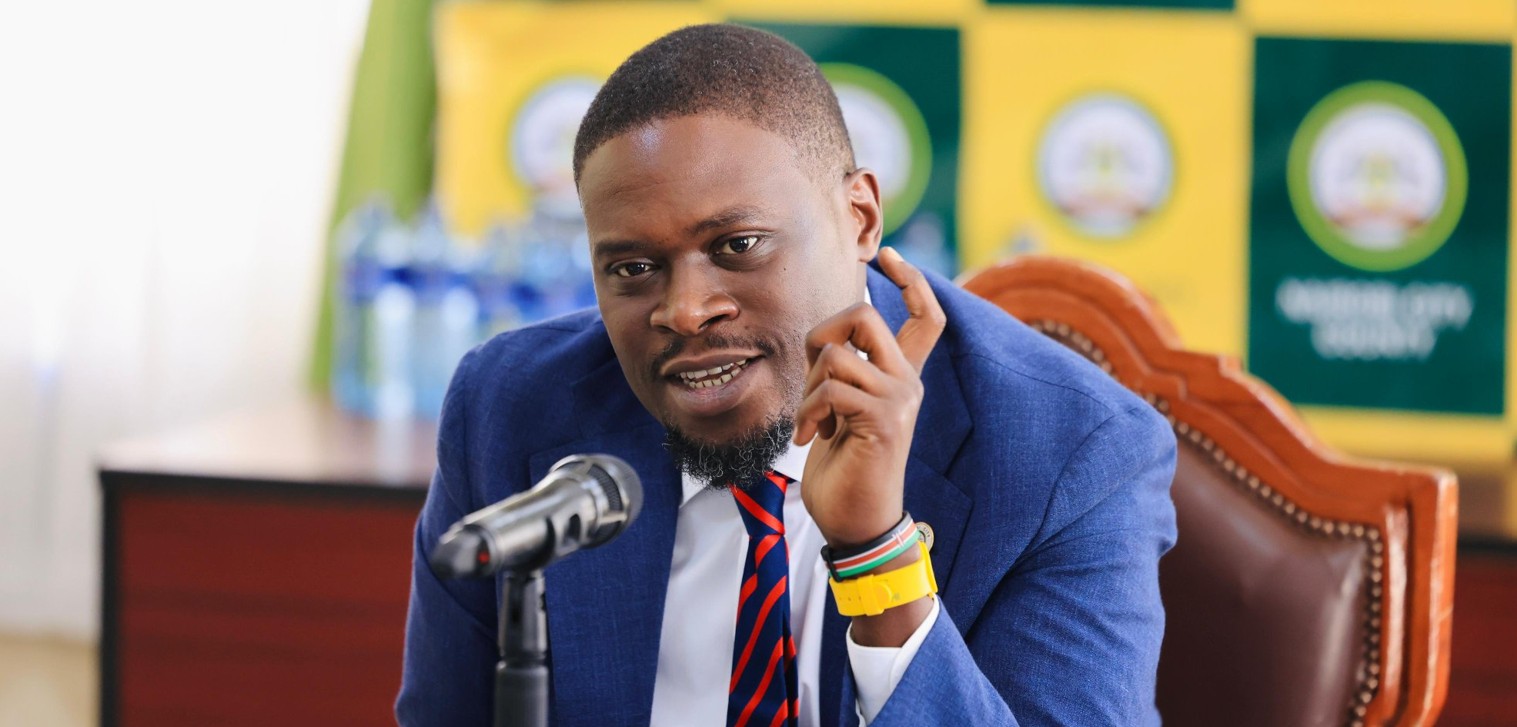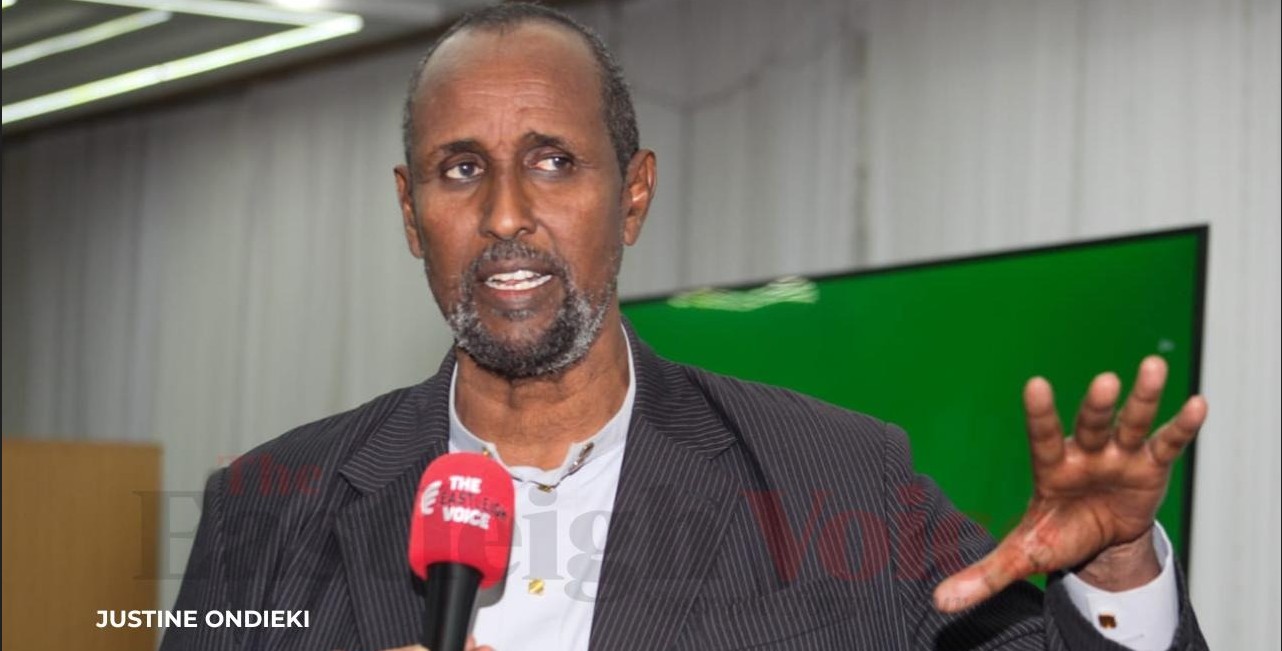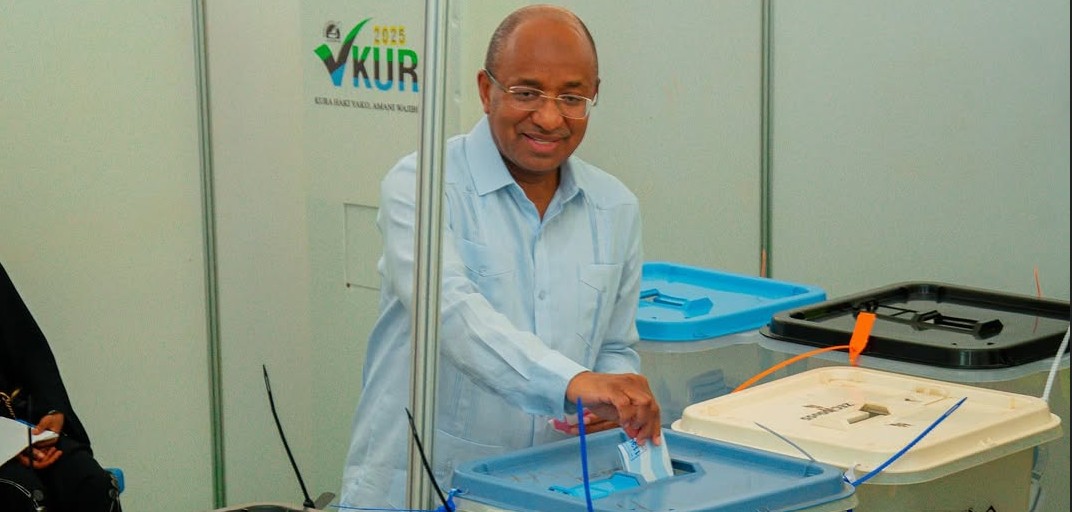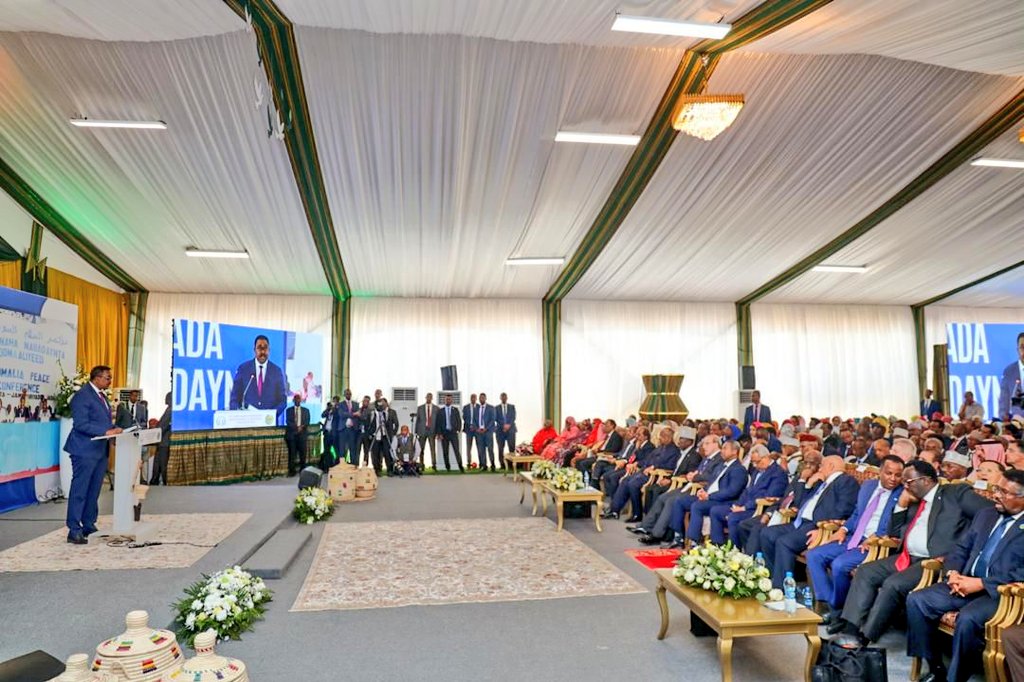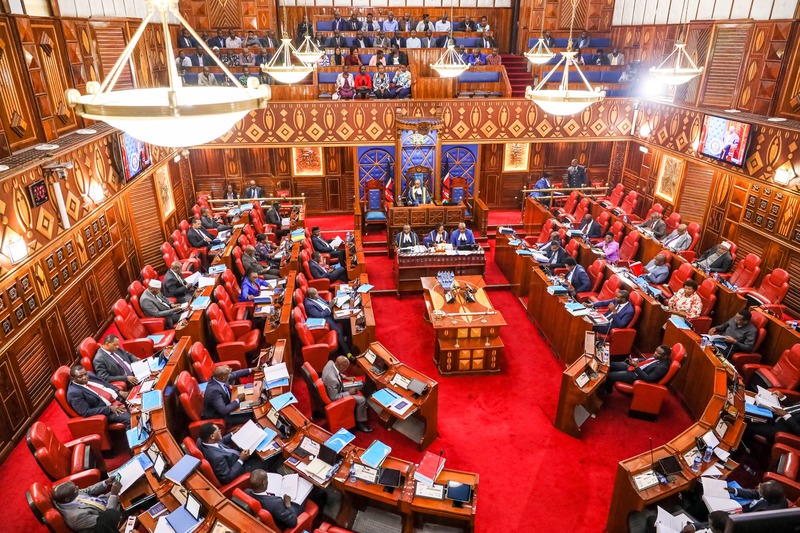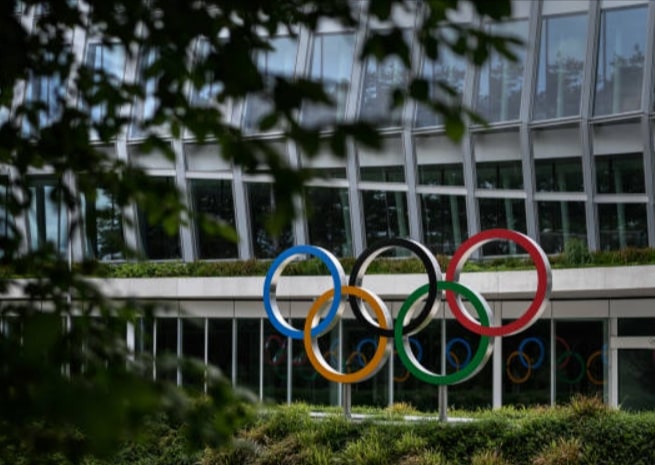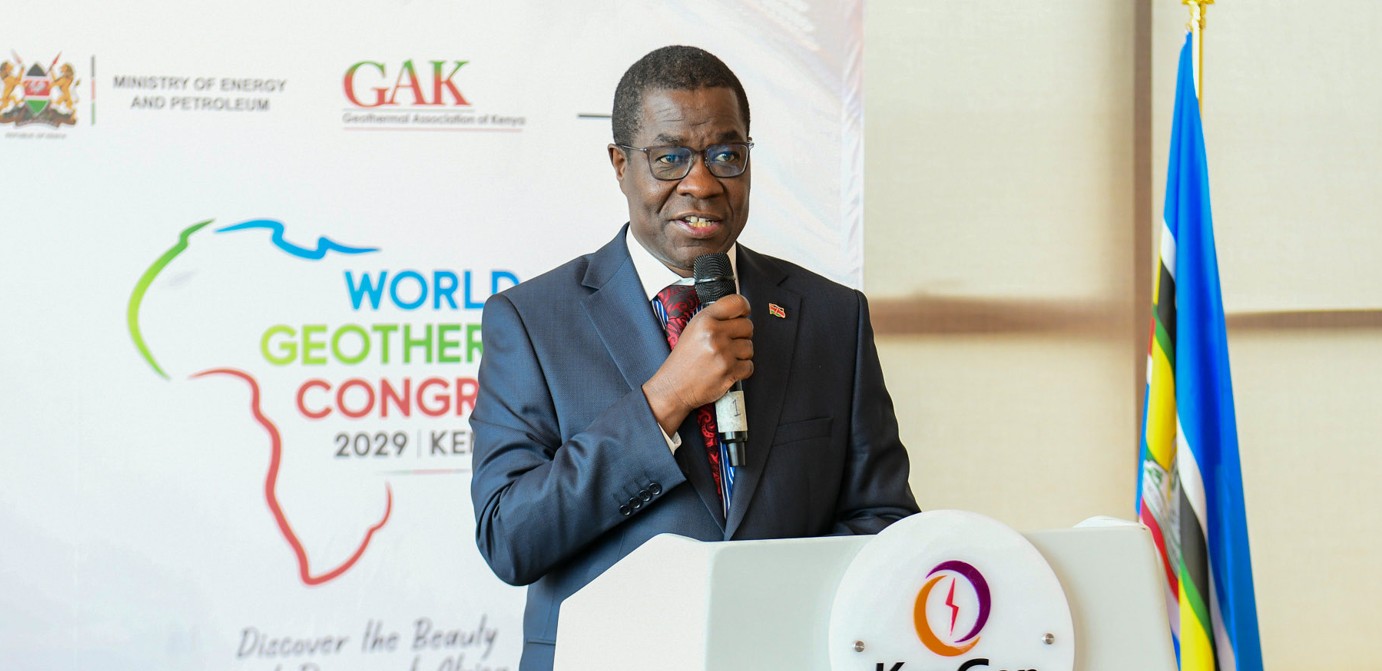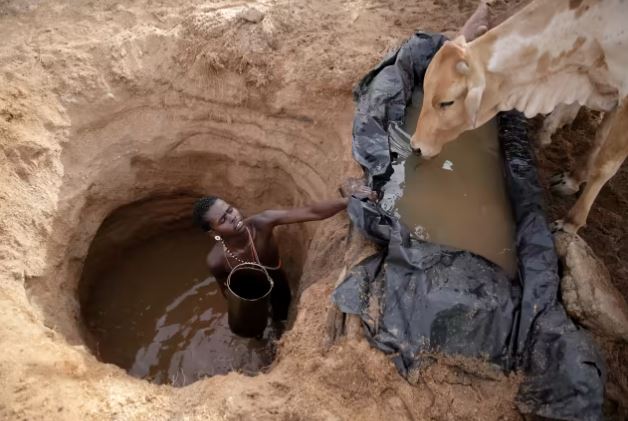Ruto US visit: A new era of diplomacy?
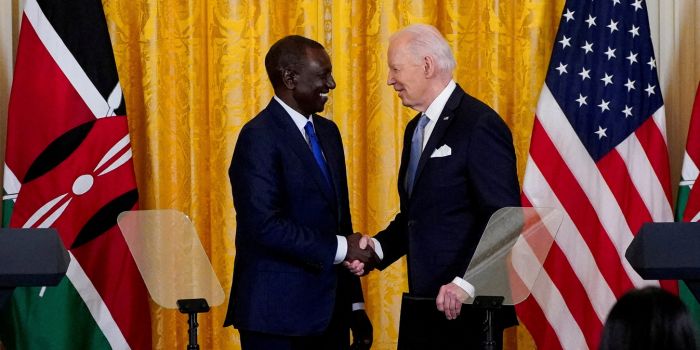
While it seeks to maintain strong ties with the US, Kenya also engages with China and Russia, particularly with regard to business.
Kenyan President William Ruto's visit to the White House marks a pivotal moment in the evolving relationship between his country and the United States. It is the first state visit by an African leader to the US in 15 years, highlighting Kenya's growing significance in East Africa's geopolitical landscape.
Since gaining independence in 1963, Kenya has been a strategic US ally. Although the relationship has encountered challenges over the decades, there has been notable improvement in recent years.
More To Read
- China deploys 48th Naval Escort Fleet to Gulf of Aden for anti-piracy mission
- Chinese companies are changing the way they operate in Africa: Here’s how
- New report shows China’s growing reach across 101 countries, Africa key to strategy
- 'Yiwu Selection' store debuts in Nairobi, bringing Chinese brands closer to Kenyan consumers
- How Africa should reimagine its trade future upon AGOA’s expiry in September - experts
- Kenya's Non-NATO status at risk as US Congress probes Ruto administration over extrajudicial killings, Sudan's RSF links
"Since President Ruto came to power two years ago, things have gotten much better. This visit speaks to the growing importance of this partnership," according to Ebenezer Obadare, a senior fellow for Africa studies at the Council on Foreign Relations.
Trade at forefront of talks
"Kenya has always been a strong ally of the US, dating back to the period right before independence," Ken Opalo, an Africa specialist and professor at Georgetown University, told DW.
However, he noted that the "low levels of trade between the two countries" have proven a weak link — a gap the proposed Strategic Trade and Investment Partnership (STIP) aims to bridge by enhancing commercial relations and laying the groundwork for stronger economic engagement.
"For Kenya, the visit is part of efforts to increase Kenya-US trade and attract US firms to invest in Kenya."
In his speech at the White House, Ruto emphasised the importance of economic collaboration: "We will discuss investment opportunities, trade, and hopefully persuade the US to renew the African Growth and Opportunities Act, giving Africa market access to create jobs and spread prosperity."
Economic cooperation between Kenya and the United States has grown significantly in recent years. Kenya's economy — now one of the fastest-growing in Africa — presents numerous opportunities for US-based businesses. The US increasingly imports horticultural products and apparel from Kenya, while several companies have established operations in the country.
Nairobi also sees the visit as an opportunity to attract even more US investment and boost bilateral trade.
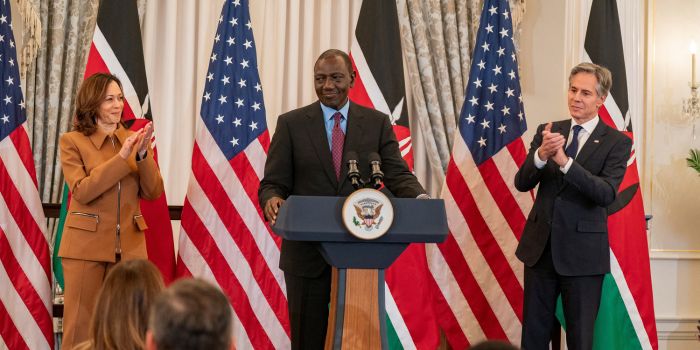 President William Ruto speaks as US Vice President Kamala Harris and Secretary of State Antony Blinken look on during a luncheon at the State Department in Washington, US, on May 24, 2024. (Photo: Ken Cedeno/Reuters)
President William Ruto speaks as US Vice President Kamala Harris and Secretary of State Antony Blinken look on during a luncheon at the State Department in Washington, US, on May 24, 2024. (Photo: Ken Cedeno/Reuters)
Security partnership remains stable
Security cooperation has also emerged as a cornerstone of Nairobi-Washington relations.
In a joint press conference, US President Joe Biden announced that he is "working with Congress to make Kenya a major non-NATO ally."
That would make Kenya the first sub-Saharan African country with that designation.
Kenya plays a crucial role in countering terrorism in the region, especially in the fight against Al-Shabaab in Somalia. The US in turn provides substantial security assistance to Kenya, including military equipment and intelligence support, while also addressing its own broader strategic goals for East Africa.
Ruto showed appreciation for the "collaboration the United States has given Kenya to make sure we undertake our responsibilities in securing our region."
But Ruto is securing more than his own region. Around 1,000 Kenyan police officers are set to arrive in Haiti to fight gang violence. The US is "firmly committed to supporting" this action, national security advisor Jake Sullivan recently said.
Last year, both countries signed an agreement that will guide defence relations for the next five years as Al-Shabaab continues to drive violence in the region.
According to Opalo, this security partnership has become vital for regional stability.
"Kenya continues to face security threats from Al-Shabaab. American assistance would go a long way in helping security forces tackle these threats," Opalo said.
Russia and China: The elephant in the room?
However, while it seeks to maintain strong ties with the US, Kenya also engages with China and Russia, particularly with regard to business.
China has made inroads across the continent by funding major infrastructure projects, while Russia has been seeking closer economic ties with some African nations after Western nations imposed tough sanctions following the invasion of Ukraine.
But Obadare said that while many African countries still prefer to align themselves economically with China, Kenya "has headed in the other direction, taking the path of the US and the West"—especially under Ruto's administration.
Biden remarked that "the past is our proof that we are stronger, and the world is safer when Kenya and the United States work together."
Kenya's involvement in the United Nations-backed intervention in Haiti and its condemnation of Russia's invasion of Ukraine serve as evidence of this more pro-Western alignment, Obadare explains.
However, Opalo stresses that Kenya is ultimately pragmatic in its approach and plans to maintain "strong commercial relations with China" and is open to other partnerships while also solidifying its relations with the US.
Top Stories Today

